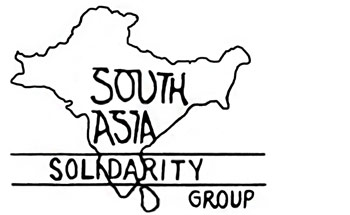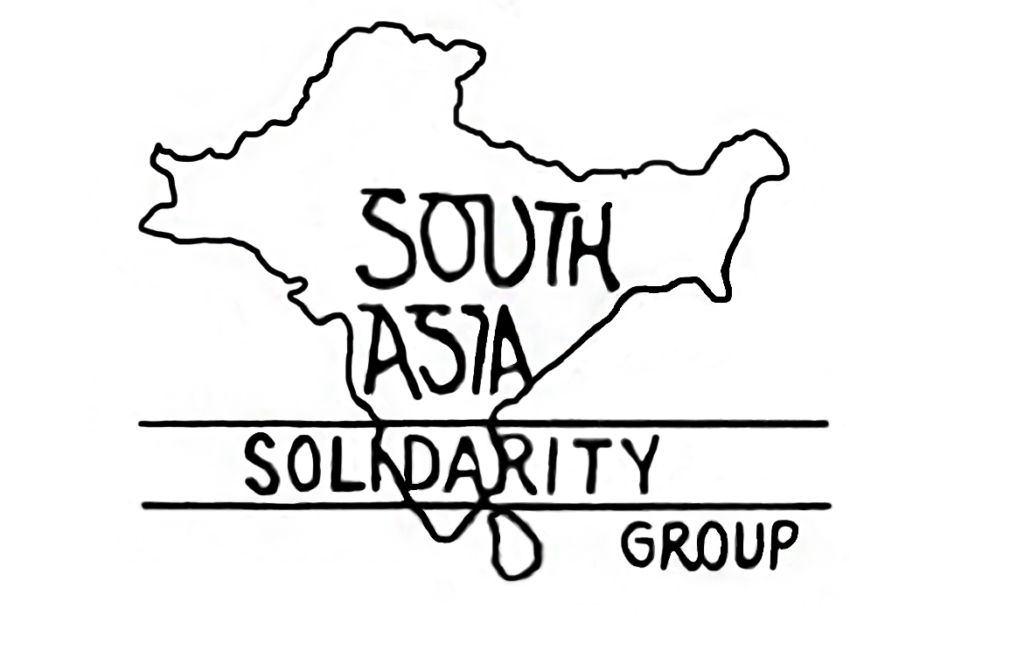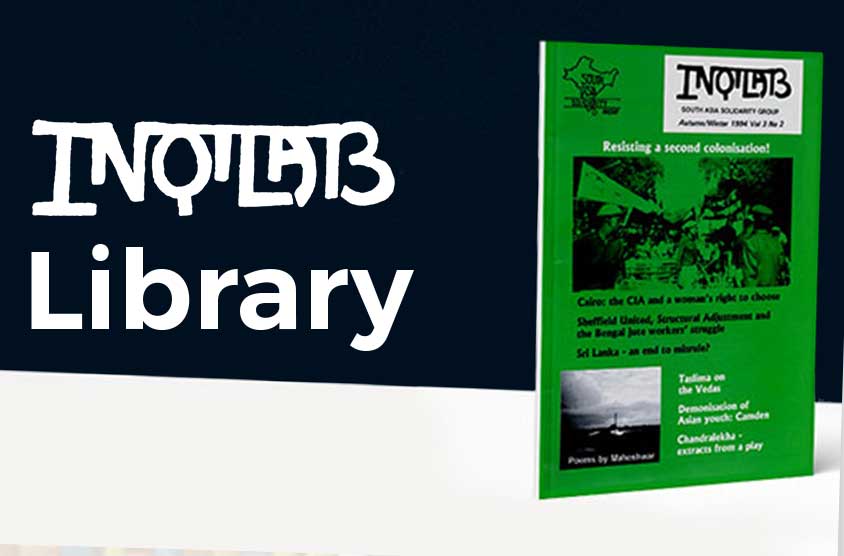Soni Sori’s “Crime” in the Land of the Robber Barons
- September 14, 2012
- Posted by: admin
- Category: News

Describing Maoists as the “most formidable threat” to the country’s security, India’s Home Minister Palaniappan Chidambaram has recently been emphasizing the need for more “men, weapons, and vehicles” to fight terrorism and establish a new National Counter-Terrorism Center.
While the chief ministers of some regional state governments (particularly those ruled by opposition parties) have opposed Chidambaram, there can be no doubt that like him, they too feel that more must be spent on repression. Simply, they want to keep the control of “security” in their states in their own hands.
But why, with billions of rupees already being spent on counter-terrorism activities, is more now needed? Is the government really facing a “formidable threat?” And what
is it like to be at the receiving end of the government’s security forces? Soni Sori’s experiences provide some answers to these questions.
Sori, an Adivasi (indigenous) school teacher from a small town in the central Indian state of Chhattisgarh, is in prison charged with aiding Maoists.
Her story highlights not only the horrific human rights abuses at the hands of Indian security forces but, in a variety of ways, illuminates the collective experience of the majority of the population of Chhattisgarh, and indeed of a wide swathe of central India. Until recently, this region of deep forests and beautiful mountains, which includes not only Chhattisgarh but also the states of Odisha, Jharkhand, Madhya Pradesh, and Andhra Pradesh had been ignored byIndia’s engines of “development.” Similarly to colonial times, still today there are few schools or hospitals and malnutrition levels in these states are some of the highest in the world.
However, in the last decade and a half the riches under the ground, particularly coal, iron, and aluminum, have drawn the attention of global capital and the region is now buzzing with mining companies, security forces to clear the way for them, and international NGOs. Multinationals such as Rio Tinto, BHP Billiton,South Korea’s POSCO, the Indian-owned Essar, and many more are all there seeking their share of the spoils.
These companies are taking over fertile agricultural land and sacred sites and uprooting whole villages. They are displacing thousands of indigenous people – robbing them of their homes, destroying their livelihoods and culture, and reducing them to refugees in their own country. With little concern forIndia’s environmental laws, many of these companies are also destroying the land itself, not only for now but for generations to come, as they rip off the topsoil and pollute rivers and streams for miles with toxic effluents and poisonous mud.
In the last decade and a half the riches under the ground, particularly coal, iron, and aluminum, have drawn the attention of global capital.
If in the colonial era guns accompanied foreign appropriation, today independent India’s neoliberal state has gathered the full force of its repressive machinery and military power to ensure that global capital can plunder the country. On roads built specially for the purpose the paramilitary, police commandos and recently the army have invaded the region targeting all resistance – be this in the form of people’s movements, guerrilla groups, or even individual dissenters such as human rights activists and journalists.
India’s central belt is also the scene of what has been described as a veritable zoo of paramilitary forces: “Black Cats” (Indian Special Response Unit specializing in counter-terrorism) who provide VIP security, “Cobras” (Command Battalion for Resolute Action), Grey Hounds, Scorpions, and others. In addition, there is the Central Reserve Police Force (CRPF) and Border Security Force (BSF) well-known for their brutality in Kashmir and India’s north eastern states. As if this were not enough, there have also been armed vigilante groups – among them the notorious “Salwa Judum” which was set up with initial funding from steel companies Tata and Essar. Supposedly, it has now disbanded in response to popular protests.
The multinationals also have their own private armies. Female members of Tata’s militia were photographed attacking and disrobing indigenous women protesters in Odisha. There are also the untrained Special Police Officers, notorious for their cruelty and arbitrary violence.
Meanwhile, like the missionaries of the last century, international NGOs are active, often seeming to divert the energies of those who oppose the mining companies and attempting to literally buy up many of the activists who resist the corporates with offers of jobs, perks, and free Tata Sumo four-wheel drives.
The multinationals, the Indian government, and international NGOs work in cosy collaboration, supported by agencies like Britain’s Department of International Development for whom both Odisha and Chhattisgarh are “focus states.” The aluminium company Vedanta is an example. It has been engaged in an epic battle with the indigenous Dongria Kondh communities in the Niyamgiri hills of Odisha over the destruction of thousands of acres of fertile agricultural land in a region which has seen famines every year since 2007. Drinking water sources have been contaminated by its dumping of fly ash and toxic red mud into river streams, and thousands of indigenous people have been displaced.
The multinationals, the Indian government, and international NGOs work in cozy collaboration.
Vedanta has the support of various arms of the British government which helped float it on the London Stock Exchange. It also has an interesting relationship with the international NGO Action Aidwhich on the one hand, appears to oppose it vociferously, and on the other has praised it for its “good work” in the Niyamgiri area and has received funds from the company’s subsidiary Sterlite.
Vedanta has been consistently confronted by the indigenous communities. Armed with little more than their anger, courage, and strength of spirit, the Dongria Kondh people have fought back over the last seven years with massive blockades and protests. Their powerful people’s movement has won some victories, most notably in August 2010, when the Indian government, under enormous pressure, prevented Vedanta from mining bauxite in the Niyamgiri hills.
While people’s movements are taking on the mining giants, Maoist guerrillas are also active in this region. Though some villagers have been drawn to them, many are alienated by their acts of indiscriminate violence – attacking and derailing trains carrying ordinary, not particularly well-off, citizens, for example, or sporadically killing not only police and paramilitary officers but also Adivasi villagers and taking hostages to try to negotiate freedom for Maoist prisoners. Their approach to the multinational companies is contradictory, while they have attacked an Essar pipeline, for example, they have also been exposed (by WikiLeaks) for taking protection money from the same company. While both Essar and Maoists spokespersons have denied this,
some local people say the news is merely a confirmation of what they had long suspected.
Whatever the truth is, it is clear that the presence of Maoists has allowed for protesters to be killed and their bodies dumped in the forest, eventually to be identified as “Maoists” who have been killed in “armed encounters.” The Maoist presence is also a pretext for the military occupation of the whole region.
Behind the propaganda about the state’s war against Maoists, and obscured by it at times, lies the reality ofIndia’s central belt where the robber barons of global capital dictate the terms.
On a day-to-day level no one knows who may turn up on their doorstep or accost them in the market place, a police officer ordering them to become an informer, a Maoist recruiter, or a Special Police Officer who may kill them to make up their quota of dead Maoists. Yet this scene has been set by those apparently benign men in suits who run the corporations.
For Soni Sori and her family, the terrifying shadow of this war has deepened since the summer of 2009 when her 25-year-old nephew Lingaram turned down recruitment by the Maoists. Soon afterwards he was arrested, tortured, and pressurized to become a Special Police Officer. He was released after his family filed a Habeas Corpus petition and he then fled toDelhi. In July 2010, her husband was imprisoned as an alleged Maoist. In April 2011, 300 homes were razed to rubble in a three-day police operation. Lingaram, who had been speaking out about these atrocities and had by this time finished a short course in journalism, returned to Chhattisgarh to film and write about the lives of the people. Police harassment of the family intensified.
Then on 14 June 2011 armed Maoists attacked Sori’s 70-year-old father’s house, shot him in the leg, and ransacked his home. On September 9, Lingaram and Sori were both charged with couriering money from Essar to the Maoists and Lingaram was arrested.
At this point, managing to somehow leave her three young children at different relatives’ houses, Sori fled toDelhito seek legal help. While there, she spoke out about the human rights abuses in the state. Within days she was arrested and remanded to the custody of the Chhattisgarh Police who were directed to “ensure her safety.” How they did this has now been exposed by human rights activists and confirmed by the doctors who examined her following an order issued byIndia’s Supreme Court.
Under the direct orders of the Chhattisgarh Superintendent of Police, Ankit Garg, she had been verbally abused, stripped naked, given electric shocks, beaten, and
sexually assaulted with stones and batons. The medical examination revealed annular tears to her spine and stones lodged inside her vagina and rectum.
Such is the Kafkaesque nature of India’s system of justice, that on India’s Republic Day, the Prime Minister bestowed one of India’s top police medals on Garg – for gallantry.
Sori is still being held in jail in Chhattisgarh and is being denied access to medical care while she continues to fight for her survival.
As she begins her seventh month in prison, those campaigning for Sori have published her letters from prison on the Internet. In them she exposes the details of what has happened to her in custody and writes, “I am willing to die but I did not commit any crime.” As civil liberties groups and women’s organizations remind us, she criticized the human rights abuses of the state and this can be considered a “crime” in the “world’s largest democracy.”
Click on the link below to sign the petition.
http://www.change.org/en-IN/petitions/save-soni-sori-and-punish-chattisgarh-police-savesonisori


